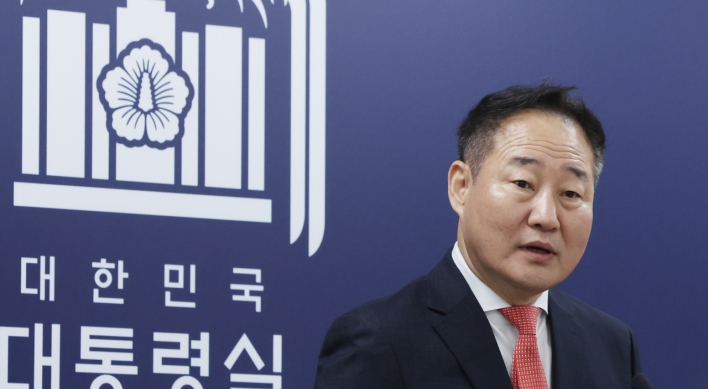Last week, a parliamentary standing committee approved a special bill that, if enacted, would shake the foundation of the nation’s financial system. Its members must be held accountable for the bill, which embodied populism at its apex.
The bill is aimed at permitting depositors to recoup 55 percent of the money they held in excess of 50 million in their accounts with savings banks at the time when the savings banks were declared insolvent last year. It is also aimed at permitting investors to recoup 55 percent of their losses from the subordinated bonds they purchased from the savings banks.
Currently, a deposit up to 50 million won is fully covered by deposit insurance. An amount in excess of 50 million won is exempted from any coverage.
Deposit insurance is a safety net that is meant to protect depositors, up to 50 million won, and promote financial stability. But it has its downsides, like all other types of insurance ― moral hazard, or the lack of any incentive for depositors to guard against risk because they are protected from it.
In other words, people would be encouraged to deposit more money in accounts with savings banks than they would otherwise do if a larger amount were to be covered by deposit insurance, as the bill purported. They would do so, not at their own risk, but at the risk of Korea Deposit Insurance Corp.
No less detrimental to the nation’s financial stability is the proposal to permit subordinated bond holders to recoup 55 percent of their losses. This cannot be justified in any way, because they invested in the highly risky financial products at their own risk, and knew that no loss could be recovered if their issuers became insolvent.
When the bill is put to a vote at a plenary session, the National Assembly will have to vote it down. Should it ever pass it, however, President Lee Myung-bak will have to veto it.
Of little concern to the members of the committee on state affairs that drafted the special bill and passed it was the moral hazard it would incur. Their desire was to curry favor with depositors and investors that took losses ahead of the April general elections.
The electorate needs to remember who the bill’s sponsors are if it is to hold them responsible for their ill-conceived action. None of them deserve to be reelected.
The bill is aimed at permitting depositors to recoup 55 percent of the money they held in excess of 50 million in their accounts with savings banks at the time when the savings banks were declared insolvent last year. It is also aimed at permitting investors to recoup 55 percent of their losses from the subordinated bonds they purchased from the savings banks.
Currently, a deposit up to 50 million won is fully covered by deposit insurance. An amount in excess of 50 million won is exempted from any coverage.
Deposit insurance is a safety net that is meant to protect depositors, up to 50 million won, and promote financial stability. But it has its downsides, like all other types of insurance ― moral hazard, or the lack of any incentive for depositors to guard against risk because they are protected from it.
In other words, people would be encouraged to deposit more money in accounts with savings banks than they would otherwise do if a larger amount were to be covered by deposit insurance, as the bill purported. They would do so, not at their own risk, but at the risk of Korea Deposit Insurance Corp.
No less detrimental to the nation’s financial stability is the proposal to permit subordinated bond holders to recoup 55 percent of their losses. This cannot be justified in any way, because they invested in the highly risky financial products at their own risk, and knew that no loss could be recovered if their issuers became insolvent.
When the bill is put to a vote at a plenary session, the National Assembly will have to vote it down. Should it ever pass it, however, President Lee Myung-bak will have to veto it.
Of little concern to the members of the committee on state affairs that drafted the special bill and passed it was the moral hazard it would incur. Their desire was to curry favor with depositors and investors that took losses ahead of the April general elections.
The electorate needs to remember who the bill’s sponsors are if it is to hold them responsible for their ill-conceived action. None of them deserve to be reelected.
-
Articles by Korea Herald





![[K-pop’s dilemma] Can K-pop break free from ‘fandom’ model?](http://res.heraldm.com/phpwas/restmb_idxmake.php?idx=644&simg=/content/image/2024/05/09/20240509050541_0.jpg&u=20240509173751)




![[News Analysis] Yoon's first 2 years marked by intense confrontations, lack of leadership](http://res.heraldm.com/phpwas/restmb_idxmake.php?idx=644&simg=/content/image/2024/05/09/20240509050612_0.jpg&u=20240509233252)








![[Today’s K-pop] NCT’s Mark to drop 1st solo album in February 2025](http://res.heraldm.com/phpwas/restmb_idxmake.php?idx=642&simg=/content/image/2024/05/10/20240510050597_0.jpg&u=)